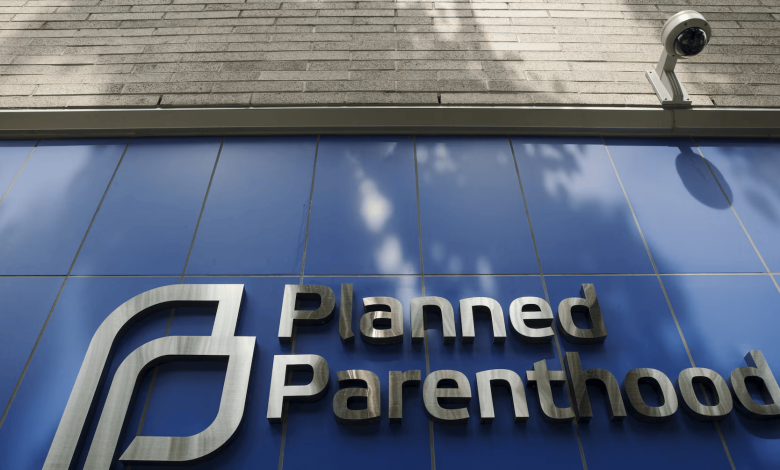The battle over taxpayer funding for Planned Parenthood takes center stage at the Supreme Court on Wednesday in a dispute over South Carolina’s exclusion of the group from the state Medicaid program because it provides abortions.

On Wednesday, the Supreme Court will hear a pivotal case concerning South Carolina’s decision to exclude Planned Parenthood from its state Medicaid program. This case marks a significant legal battle over the use of taxpayer funds in relation to organizations that provide abortion services. At its core, the dispute raises questions about federal and state powers, the rights of Medicaid recipients, and the broader implications for reproductive healthcare access across the United States.
Background of the Case
The controversy dates back to 2018 when South Carolina Governor Henry McMaster issued an executive order barring abortion providers, including Planned Parenthood, from receiving Medicaid reimbursements. The order affected healthcare services such as cancer screenings, STD testing, and birth control consultations—none of which involve abortion procedures. The governor justified the move by arguing that taxpayer dollars should not support organizations affiliated with abortion services, even if those funds are used for non-abortion-related healthcare.
Planned Parenthood South Atlantic, along with Medicaid patients who relied on its services, swiftly challenged the decision in court. They argued that the state’s exclusion violated federal Medicaid law, which guarantees recipients the right to receive care from any qualified provider. Lower courts ruled in favor of Planned Parenthood, citing federal law’s supremacy over state-imposed restrictions on Medicaid provider eligibility. South Carolina, however, appealed the decision, leading to the Supreme Court’s involvement in the case.
Legal Issues at Stake
The Supreme Court’s review of the case will center on two major legal questions:
- Does South Carolina have the authority to exclude providers from its Medicaid program based on their affiliation with abortion services, even if taxpayer funds are not used for abortions?
- Do Medicaid recipients have the right to challenge a state’s decision to exclude a healthcare provider under federal law?
Federal Medicaid law includes a provision known as the “free choice of provider” clause, which guarantees beneficiaries the right to obtain services from any qualified provider willing to accept Medicaid payments. Planned Parenthood and its allies argue that South Carolina’s exclusion directly violates this federal requirement and sets a dangerous precedent for state interference in healthcare choices.
South Carolina, on the other hand, contends that states should have the discretion to determine which providers are eligible to participate in Medicaid, particularly when those providers engage in controversial medical procedures like abortion. The state insists that its actions align with broader efforts to prevent indirect taxpayer support for abortion-related services.
Potential Consequences of the Ruling
The Supreme Court’s ruling in this case could have wide-reaching implications for both state Medicaid programs and reproductive healthcare access nationwide. If the Court sides with South Carolina, states may gain greater authority to exclude providers based on ideological grounds, potentially paving the way for similar restrictions in other conservative-led states. This could limit access to essential healthcare services for low-income individuals who rely on organizations like Planned Parenthood.
Conversely, a ruling in favor of Planned Parenthood would reaffirm federal protections for Medicaid recipients and reinforce the limitations on state power when it comes to restricting healthcare provider eligibility. Such a decision would also serve as a setback to efforts aimed at defunding Planned Parenthood and similar organizations at the state level.
Political and Public Reactions
The case has sparked intense political debate, with conservative and anti-abortion groups supporting South Carolina’s position, while reproductive rights advocates, healthcare organizations, and civil liberties groups back Planned Parenthood. Lawmakers on both sides of the aisle have weighed in, reflecting the broader national divide over abortion and government funding.
Opponents of Planned Parenthood’s Medicaid eligibility argue that taxpayer dollars should not be funneled to organizations involved in abortion services, even if indirectly. They maintain that states should have the right to enforce policies that reflect the values of their constituents.
Supporters of Planned Parenthood counter that Medicaid funding is crucial for ensuring access to basic healthcare for millions of low-income individuals, and excluding providers based on ideological reasons threatens public health. They emphasize that the majority of Planned Parenthood’s services do not involve abortion and that many patients depend on its clinics for preventive care.
The Broader Implications
Beyond the immediate impact on South Carolina’s Medicaid program, this case could set a legal precedent for future challenges to reproductive healthcare policies nationwide. It comes at a time when access to abortion and related services is already under significant pressure following the Supreme Court’s decision to overturn Roe v. Wade in 2022, which allowed states to impose strict abortion bans and restrictions.
If the Court rules in favor of South Carolina, Republican-led states may feel emboldened to pass similar exclusions, further eroding healthcare access for vulnerable populations. On the other hand, a ruling upholding the lower court’s decision could strengthen protections for Medicaid recipients and limit states’ ability to impose politically motivated restrictions on healthcare providers.









